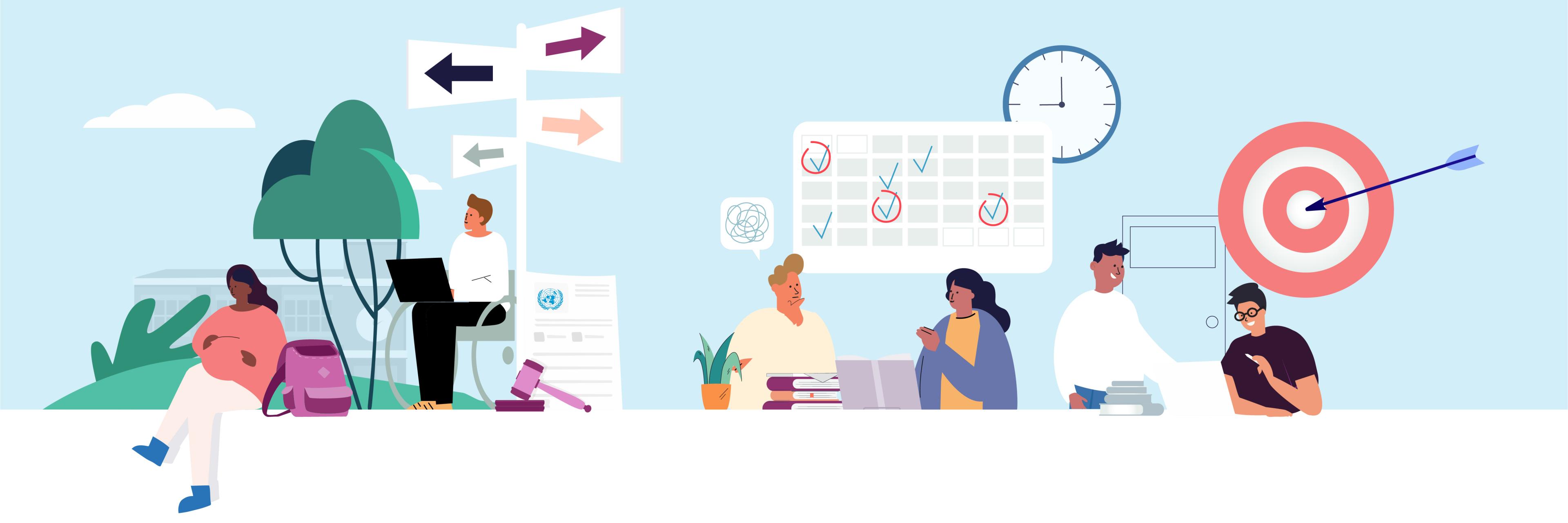
Characteristics of dyslexia
You may have difficulty processing texts quickly or summarising their content. It may be hard for you to focus on content, style and spelling all at once. As a result, it probably takes you extra time to read something. You may also find it challenging to take tests or exams that involve a lot of reading, such as comprehensive reading portions or multiple-choice questions, or to write a paper. This causes you to make many mistakes, and you frequently run out of time.
Each of the obstacles listed above can have a negative impact on your studies or internship.
This is what I deal with
Obstacles faced by students with dyslexia
As a student with dyslexia, you may find yourself facing a variety of obstacles:
- Problems taking part in education. You may have trouble taking effective notes during lectures. Preparing for lectures can present an obstacle as well, because you will need to read texts more often than other students in order to understand their meaning.
- Problems with tests/exams and assignments. It can be difficult for you to take tests, for instance when a test involves a lot of reading. You might need adjustments in order to take the test or attend class in a way that works for you.
- Anxiety and stress. Because you need so much time to study, you feel pressure in connection with deadlines. This can cause tension and stress. You are often afraid to make a mistake, which could present as fear of failure and/or a fear of tests.
- Concentration problems. Concentration problems are especially likely to be present when reading and writing.
Even though these obstacles may cause difficulties, you can rest assured that more than enough tools and solutions are available that can help you successfully complete your degree programme. In the preceding section, click on the obstacle you are facing with which you could use some help. You can then read a lot more about that topic and find additional tips and tools. If your specific obstacle is not mentioned above, please refer to the comprehensive list of obstacles.
This is what I might need
Support and facilities for students with dyslexia
A variety of adjustments and/or facilities are available that may be helpful to you during your degree programme at a research university or university of applied sciences. While there are national schemes, your educational institution will offer its own forms of additional support, too.
As a student with dyslexia, you might have a need for the following:
- Educational aids. This might include a laptop or text-to-speech/dictation software. There are also facilities for adjusted testing, such as extra time or a larger font. Examples of educational aids can be found on this page under ‘Tips’.
- Study materials. Maybe you need support in the form of accessible study and course materials.
Have a look at the other facilities that might be helpful for you, too.
Tips
- Read the tips that can help you for greater study success here.
Organisations and tools
The Help Guide lets you find organisations that have expertise in your support needs. Check out the features of this tool. (Dutch)
Experiences
- Read other people's experience stories here.
- Share your experience story too. With your experience story, you can give others, such as education professionals and fellow students, an insight into what goes well and what could be better when studying with a support requirement. A source of inspiration with tips, hints and flops.Together with you, ECIO provides an experience story with impact.